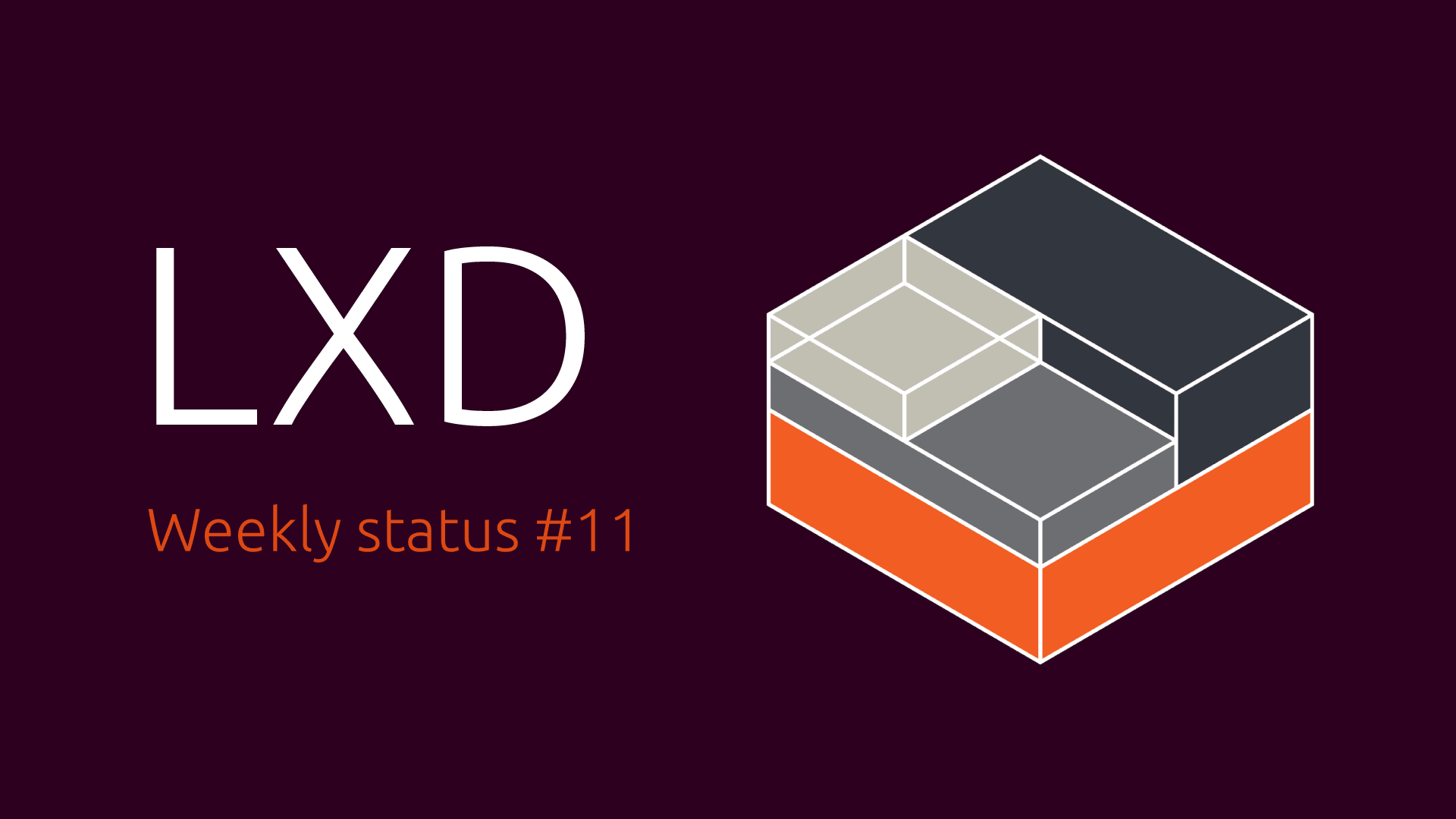LXD: Weekly status #11
Stéphane Graber
on 21 August 2017

Introduction
This week has been pretty busy, with the most time consuming work being:
- More preparation for the upcoming LXC 2.1 release (getting very close now).
- Dealing with a massive (500+) backlog of patches for the LXC 1.0 and 2.0 stable branches.
- Quite a bit of refactoring in LXD around the daemon struct and database code.
- Initial work on performance testing for LXD.
- Implementation of delta downloads for the daily LXD images.
LXD 2.17 is scheduled to be released on Tuesday and if all goes according to plan, this should be the first release of LXD where the snap package is effectively on par with the Debian package!
We’ve seen quite a big uptake of LXD on a number of Linux distributions thanks to the snap package and are very much looking forward to having the snap package be production ready.
Upcoming conferences
- Open Source Summit North America (Los Angeles, September 2017)
- Linux Plumbers (Los Angeles, September 2017) (CFP for Linux Plumbers)
- Linux Security Summit (Los Angeles, September 2017)
- Open Source Summit Europe (Prague, October 2017)
Ongoing projects
The list below is feature or refactoring work which will span several weeks/months and can’t be tied directly to a single Github issue or pull request.
- External authentication support for LXD servers
- LXD performance measurement and regression tracking
- Preparation for LXC 2.1
- Snap package improvements.
Upstream changes
The items listed below are highlights of the work which happened upstream over the past week and which will be included in the next release.
LXD
- Added a key to track the initial source of a storage pool
- Cleaned up the database code in preparation for it becoming its own package
- Moved the database code to its own package
- Split our test code so that the setup code can be used in other scripts.
- Implemented support for delta daily images.
- Moved some more test code.
- Made it so that LXD can work without dnsmasq present.
- Fixed a race condition in the progress tracking code.
- Fixed a typo in an error message.
- Added daily testing of all LXD images.
LXC
- Processed the entire backlog of stable 2.0 bugfixes.
- Processed the entire backlog of stable-1.0 bugfixes.
- Made some more LXC 2.1 config handling preparation.
- Fixed a gcc7 build regression.
- Added a check for netfilter comments in lxc-checkconfig.
LXCFS
- Nothing to report this week
Distribution work
This section is used to track the work done in downstream Linux distributions to ship the latest LXC, LXD and LXCFS as well as work to get various software to work properly inside containers.
Ubuntu
- LXC was updated in the Ubuntu development release to workaround a gcc7 regression.
Snap
- Updated the wrapper scripts with before comments
- Cleaned up some of the content filters
- Added support for bash completion
- Added support for auto-creation of the “lxd” group
- Bumped the Go version to 1.8.3
- Fixed an upgrade issue with snapd 2.27
Talk to us today
Interested in running Ubuntu in your organisation?
Newsletter signup
Related posts
AWS IoT Greengrass comes to Ubuntu Core
AWS’s open source edge run time meets Canonical’s fully containerized OS for devices delivering a supported and robust end-to-end answer for enterprises...
Tutorial: getting started with AWS IoT Greengrass on Ubuntu Core
We recently announced that you can now benefit from the combined power of Ubuntu Core and AWS IoT Greengrass to bring the computation, storage, and AI...
How to avoid package End of Life through backporting
When a Git vulnerability hit systems past Ubuntu package end of life, teams had to reassess security options. Learn how to stay protected beyond standard support.
